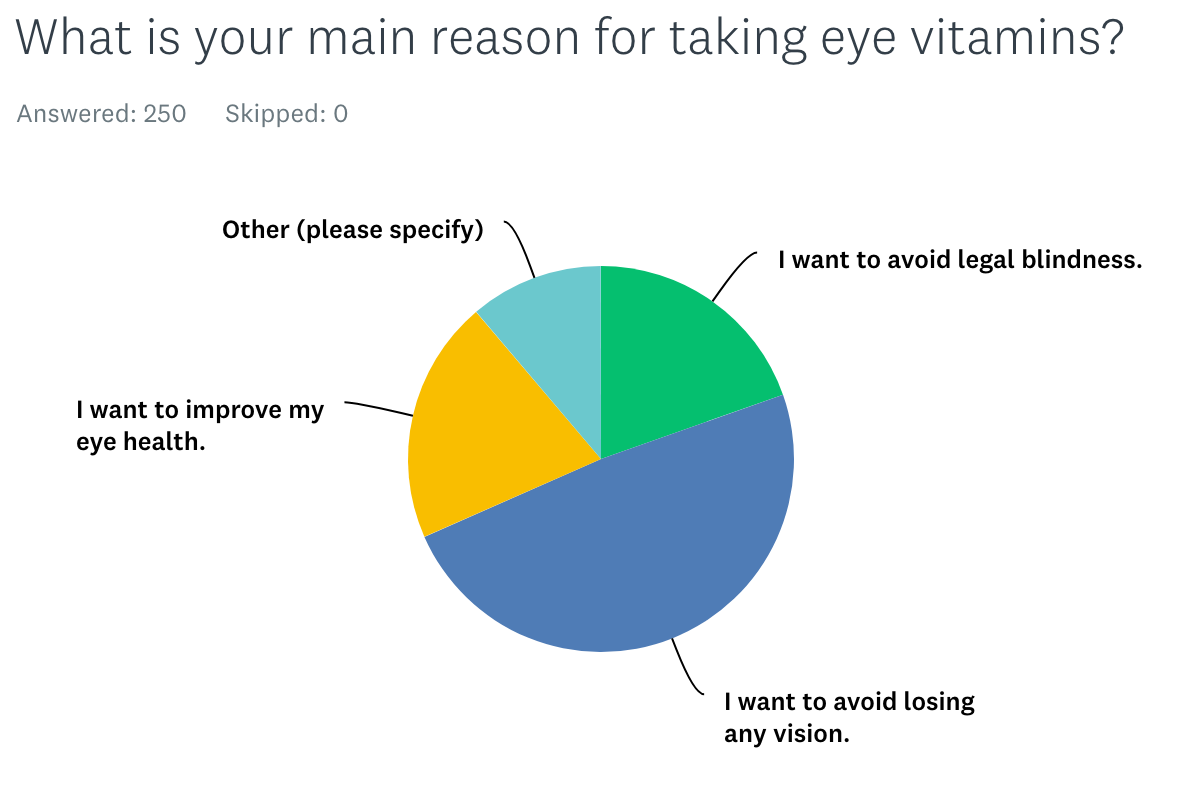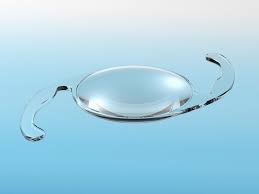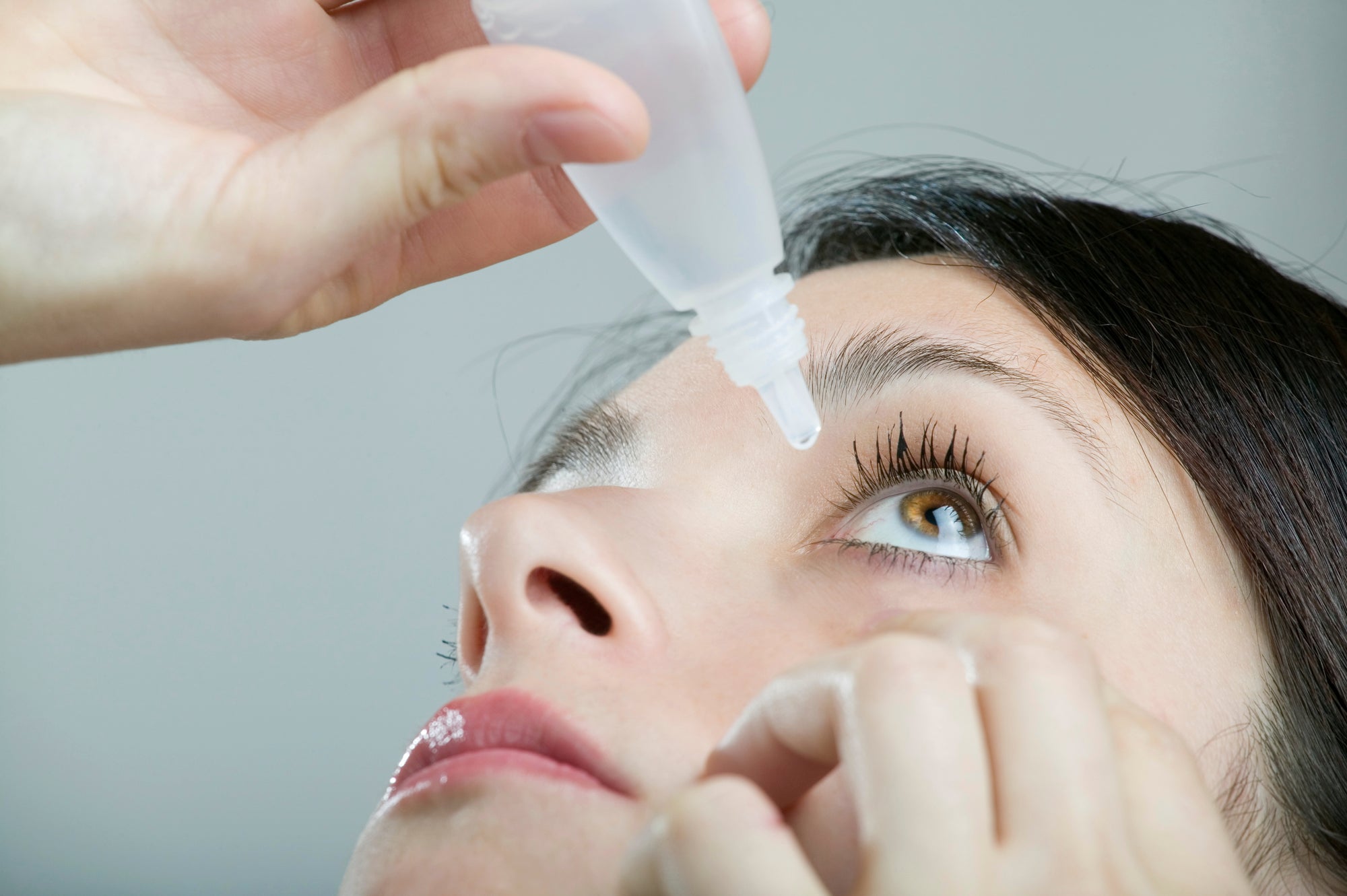We know from a recent survey of VisiVite eye vitamin users that their main motivation for taking eye vitamins wasn't legal blindness but rather losing ANY vision.

That's actually very similar to my motivation as an ophthalmologist on behalf of my own patients: I don't want to see ANY progression on their photographs or optical scans. If I do, I modify strategies. And although not the same as a study of thousands of patients, I witness invaluable follow-up to see if those strategies have been successful. Below are some of my nutritional support strategies for my own patients.
For someone with new dry macular degeneration, I usually start them on an AREDS 2 supplement, VisiVite Select or VisiVite Gold, depending upon the initial severity. The only exception is for people who take anticoagulants for whom I recommend VisiVite E-Free. If there is subsequent progression, sometimes we'll do a genetic analysis to make sure that the person doesn't have complement factors that advise against taking Zinc. If there are broadening areas of geographic atrophy, I'll add Nordic Naturals ProDHA. If I feel there is an increasing likelihood that the dry macular degeneration might progress to wet macular degeneration, I'll add Reziva resveratrol, a once-daily red grape extract with a multitude of health supporting benefits.
Because VisiVite eye vitamins are not drugs, not everyone's progress can be halted of course. But we usually witness wonderful eye health support with this customized approach. Although we're seeing a much lower number of patients with wet macular degeneration than we saw 25 years ago, likely a result of improved nutritional awareness, the good news is that injections administered to the eye by retinal surgeons can successfully stop and often reverse that process.














